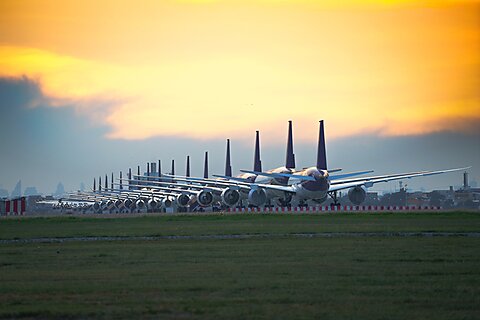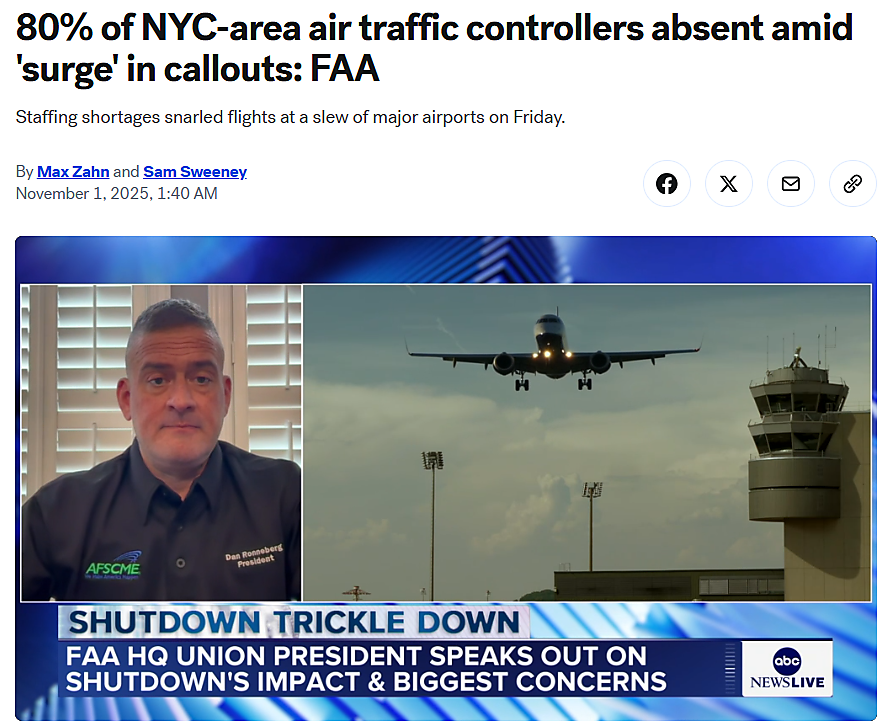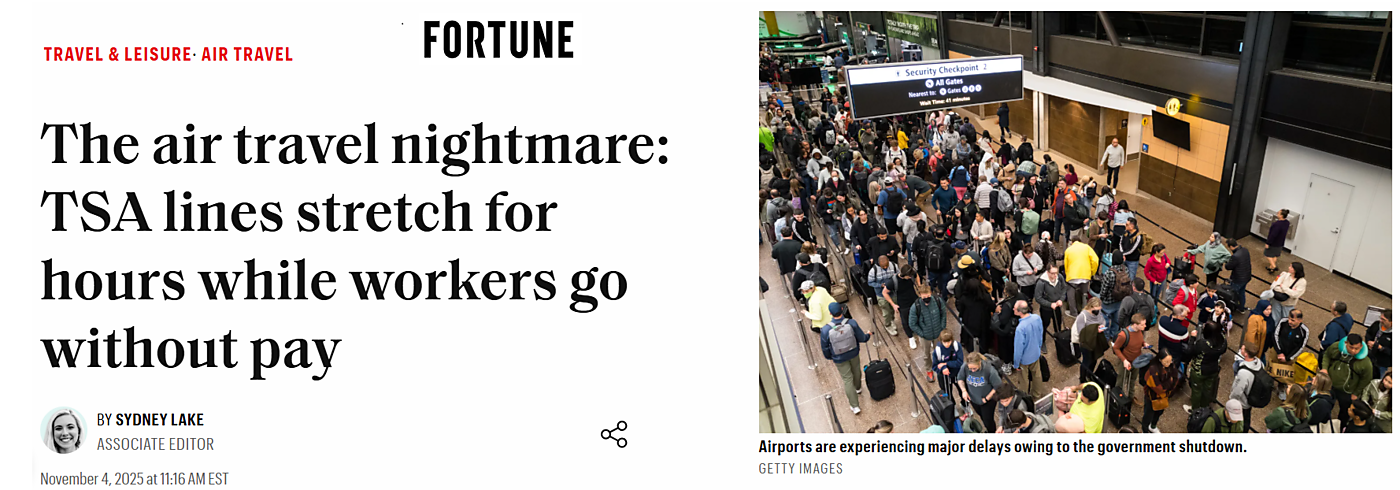Chris Edwards
Air traffic control (ATC) is becoming air traffic “chaos,” as Transportation Secretary Sean Duffy warned on October 4. As employees of the Federal Aviation Administration (FAA), air traffic controllers are not being paid under the government shutdown. Some are staying home, which is causing flight delays and cancellations across the country.
Such budget-driven chaos is unnecessary, as we don’t need to embed ATC within our dysfunctional government. I’ve championed ATC privatization based on the Canadian model. The government doesn’t build airplanes, and nor should it be guiding them through the skies. ATC is a high-tech industry needing flexibility, top talent, leading-edge innovation—and funding stability.
Short of privatization, Reason’s Robert Poole argues that we should at least move ATC out of the bureaucracy. He says that 98 countries have insulated their ATC from politics by moving it into a user-funded organization outside the government budget. Poole notes that “our airlines, passengers, and air traffic controllers would be spared the present miseries” if Congress were to separate ATC operations from our failing FAA.
Poole also discusses a “devastating critique” of the FAA’s modernization plan called NextGen. The two-decade $36 billion effort has achieved only 16 percent of its intended benefits, according to Department of Transportation auditors. Rather than creating a leading-edge ATC, the auditors found that “many key programs and capabilities are over budget and delayed until 2030 or beyond.”
Americans cannot wait years for the bumbling FAA bureaucracy to upgrade its old equipment, especially as aviation demand keeps rising. Further, political battles over the budget will only get worse in coming years, and more shutdowns are likely. Once the current crisis has ended, Congress should pursue reforms to move ATC operations out of the budget and into a self-funded organization like the Canadian system.
Transportation Security—Administration or Anarchy?
ATC is not the only part of American aviation held hostage by the government shutdown. Airport security screening is suffering delays as unpaid Transportation Security Administration (TSA) workers are beginning to stay home. Like the FAA-caused disruptions, the TSA-caused delays are unnecessary, explains Reason’s Marc Scribner:
“Airport security screening is too important to be left to the political strife of Congress. Instead, security screening operations should be devolved to individual airports, with the TSA reorganized as a dedicated regulatory agency to oversee this reformed system.”
The best practice globally is to split the provision of airport screening (which should be decentralized) from aviation safety regulation (which should stay in the government). Scribner notes that the “current TSA dual provider-regulator model presents an inherent conflict of interest, while its monopoly and dependence on general government funding create a high-cost single point of failure.”
After the shutdown debacle ends, Congress should transfer control of passenger and baggage screening to the nation’s airports. The airports could then contract out the services to expert security firms. Most airports in Europe and Canada use private companies for aviation screening. The federal government would retain responsibilities for aviation intelligence and overall safety regulation.
Congress should free American aviation from the chaotic federal budget. The TSA has been causing delays and flunking security tests for more than two decades, while the bureaucratic FAA is no place to house a high-tech industry. For a nation that pioneered aviation, we should be leaders on ATC and efficient airport screening, and we will only get there by moving these systems out of the federal bureaucracy.



